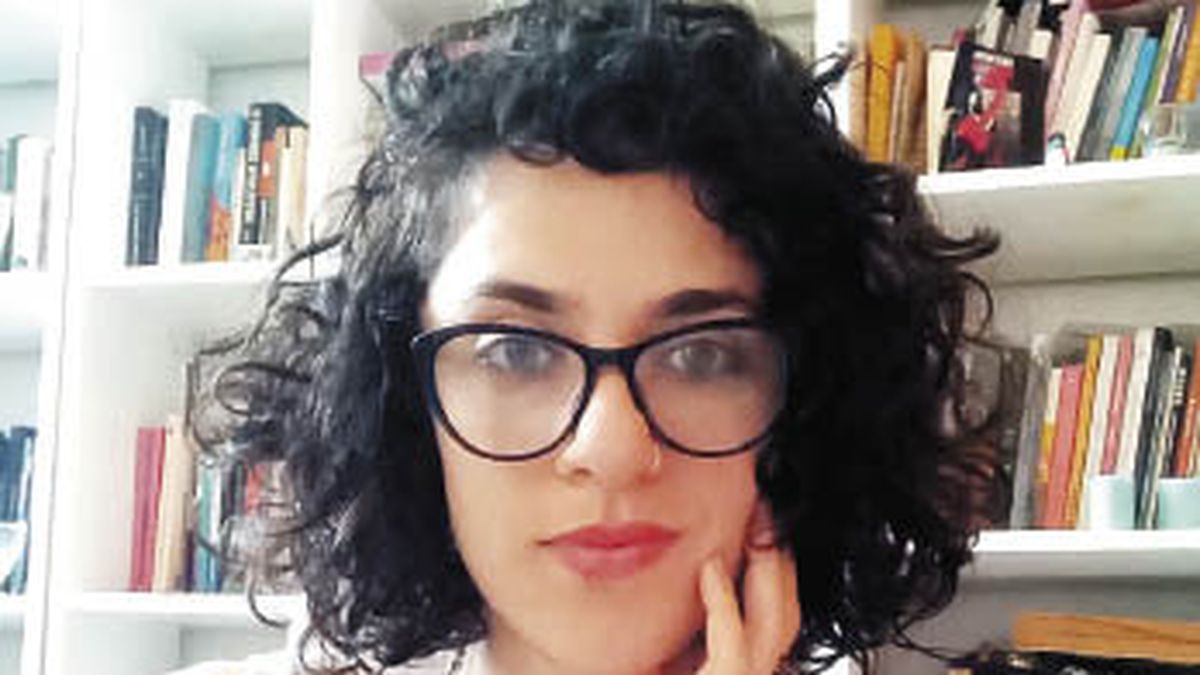Leila Sucari: I had not thought of it. I think there is something pictorial in the story, a work in the images, in the condensed language, in the texture of what the narrator tells. Perhaps in that there is something from my training in the visual arts, which is quite present in this book and in general in what I write. But in this novel I think it is even more related to the lines, textures, images, colors and contrasts. Even in the way of writing, of thinking about language as a matter, as a sculpture where I take pieces of the initial block, discovering another way of approaching the story of the protagonist, who is the one who tells what happened to her and what is happening to her. .
Q.: Does the narrator go to the countryside because she has a lot to bury?
LS: It is at the same time a desire to search, for a vanishing point, to leave a city and a relationship that has her trapped, suffocated. She distances herself from the world known to her, from a loving relationship of years, from the motherhood that she was not, from an aging body. She escapes looking for a more open horizon.
Q.: You are going to bury your father’s ashes and you move away from your mother. Is she looking to get into a riot?
LS: He experiences a loss of control, of limits, of borders. His identity begins to unravel. When he settles in a campsite he takes a scandalous, provocative attitude. He is getting rid of everything he built.
Q.: Where did it come from for the narrator to transform into almost a dog?
LS: Even though it seems to be mutating, entering a wild world, it always keeps a certain amount of humanity. He doesn’t end up totally transforming, he always lives the tension between the human and the animal, it seems to measure how far he gives himself. “Almost a bitch” she began in a different way, from the man’s voice, from the left. Until I realized that I was more interested in her voice. It was a very long process with many twists and turns. I put the novel down several times. I changed my point of view. I discovered that I am not interested in him, the abandoned one, who was in a kind of stillness, in concentrated mourning, but what was happening to her, to whom he was leaving. From there it was a lot of research: the shape of the voice, the way of saying. All the while tensing, pushing her character to the extreme, seeing how far he could take her. I feel like it was a job of pushing the limits.
Q.: She leaves her partner, a psychiatrist who prescribed her medication, whom she seduced.
LS: What interested me was the moment of loss, heartbreak, and launching into something else. Both the loss and the encounter with another always imply a transformation, which in this case is extreme. I never write thinking in advance what the plot is going to be, what is going to happen, the story, the language, the rhythm take me. At one point I thought I was writing about love, and at another I realized it was about madness. I was understanding what it was about while I was advancing, and not even. When I finished the first version of the novel I began to make sense of it. My process was to accompany the narrator on that journey of transformation. I think that writing during the pandemic, in confinement, in thinking about the body, in rethinking the relationship with others, with the urban environment and with nature influenced the tension of the story.
Q.: A stage in which the empowerment of women was expanded.
LS: It’s not that I thought I was going to write a feminist novel, but there is something in vindicating the desire of the woman that is present in her desire to distance herself from the desire of the couple, of marriage, of patriarchy, of sexuality. Issues that in her begin to become questions, that lead her to vary experiences, to lose solid ground and also power. She interested me in blowing up common places and certainties. It is a novel that asks questions and delves into the question of what it is to be a person, what it is to love someone, what it is to leave the world of a city and comfort and start inhabiting your own body in a different way, establishing a new relationship with nature, seek to have your senses open, and the danger that this implies because you are on the edge of an abyss all the time. The self is about to be lost in this search.
Q.: With which authors do you associate your narrator’s voice?
LS: When I was writing “Almost a bitch” I was reading “The metamorphoses” by Ovidio, which is present in the story, there are many riches flowing from today, going back to the classics, and a lot of poetry, Marosa de Giorgio, Idea Vilariño, Cristina Peri Rossi, Silvina Ocampo . In working with silences, with the unsaid, which is essential in writing. I remembered how Marguerite Duras does it. That led me to prune the text and leave only what was the substance. Seek to discard the conventional narrative, leave the text open for the reader to do their own work. In the theoretical field “In Praise of Risk” by Anne Dufourmantelle in recent years it became my bible.
Q.: What are you up to now?
LS: Editing a new book unfolding in the voice of a teenager I’ve been writing it for the past year.
Source: Ambito
I am an author and journalist who has worked in the entertainment industry for over a decade. I currently work as a news editor at a major news website, and my focus is on covering the latest trends in entertainment. I also write occasional pieces for other outlets, and have authored two books about the entertainment industry.




